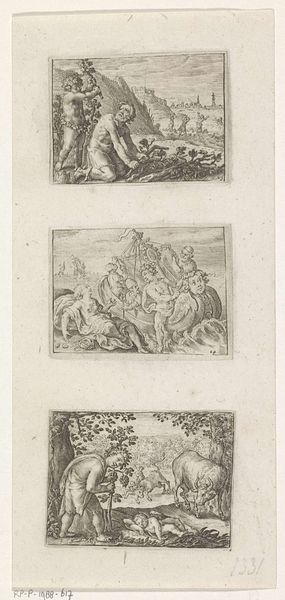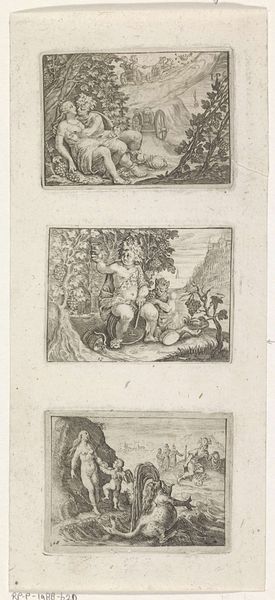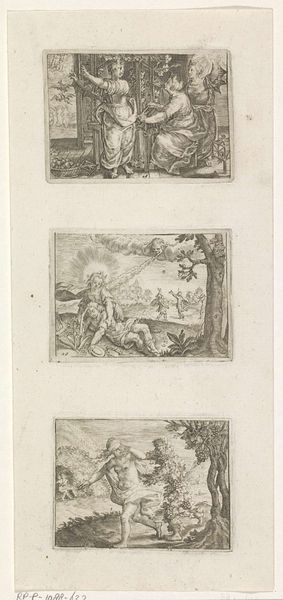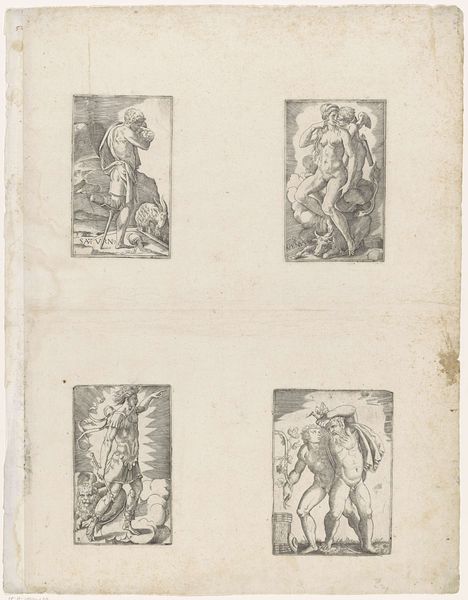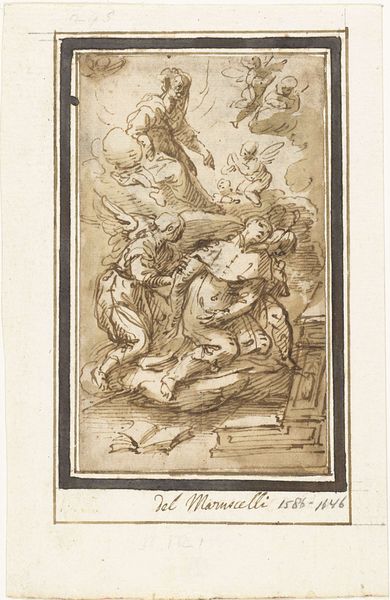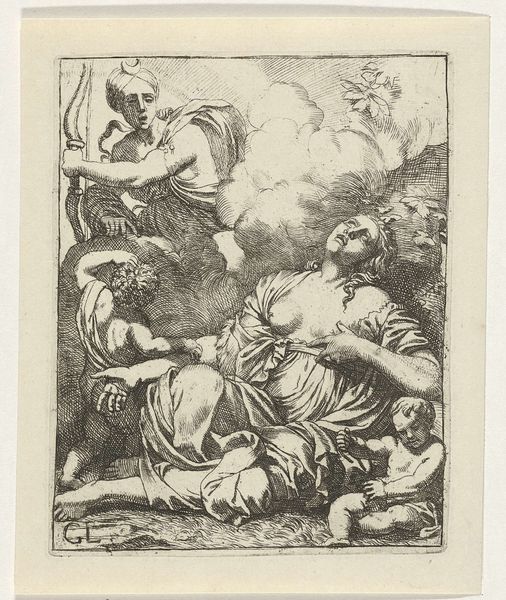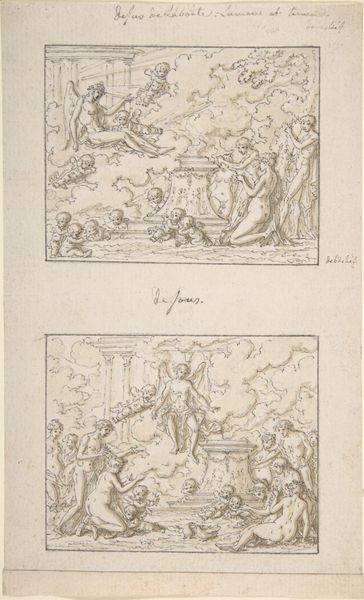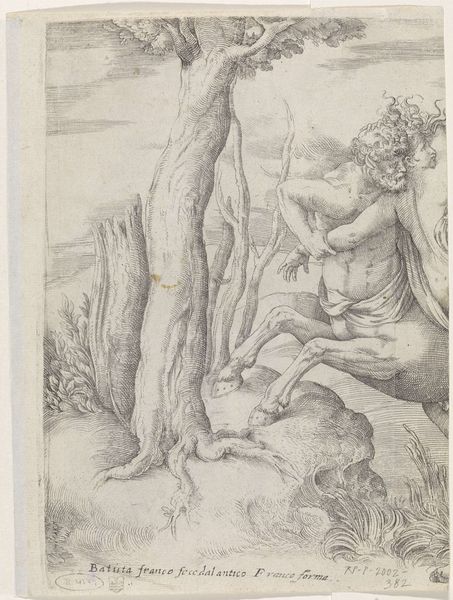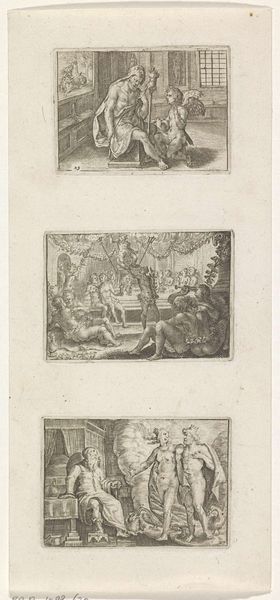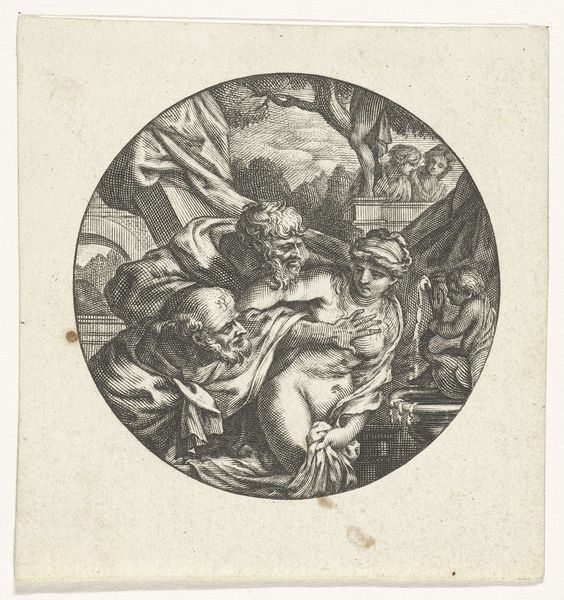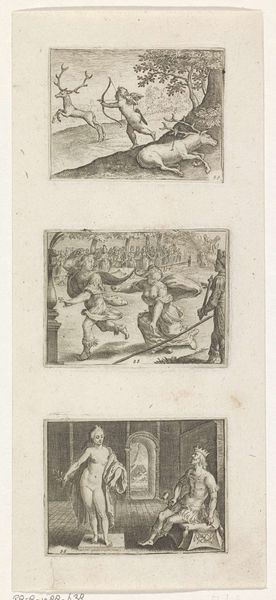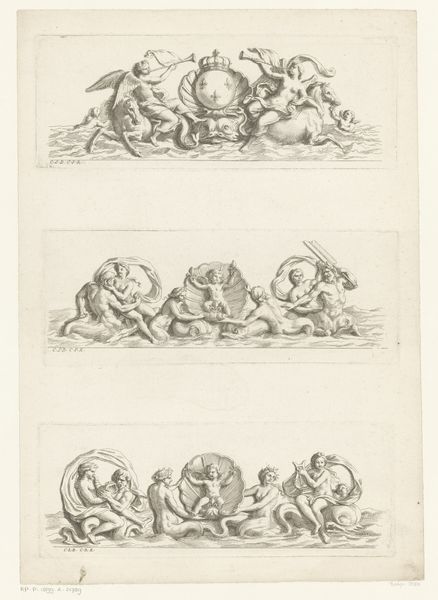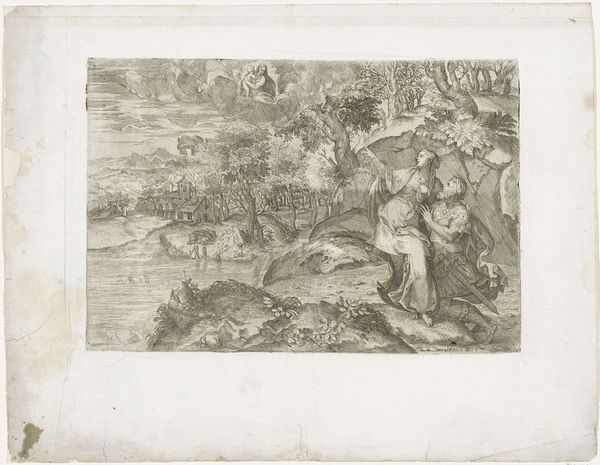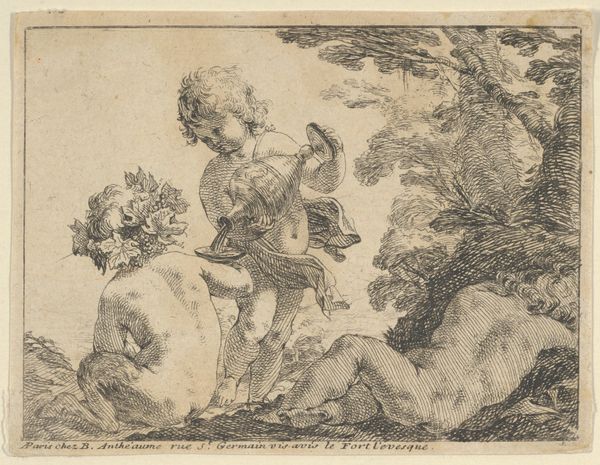
Dronken saters / Geliefden aan de waterkant / Orpheus betovert de dieren met zijn muziek 1680 - 1800
0:00
0:00
print, engraving
#
baroque
# print
#
landscape
#
figuration
#
history-painting
#
nude
#
engraving
Dimensions: height 220 mm, width 99 mm
Copyright: Rijks Museum: Open Domain
Editor: This print, believed to be by Monogrammist MP and dated somewhere between 1680 and 1800, presents three distinct scenes, all rendered as engravings. What strikes me is the stark contrast in subject matter and arrangement between them. What stands out to you most when looking at the piece? Curator: The composition immediately grabs attention. The artist employs three separate registers, each a self-contained world yet unified within the singular plane of the print. Notice how line and form dominate. The stark contrasts achieved through engraving delineate figures and landscapes with a precision that evokes both clarity and drama. What compositional techniques can you identify? Editor: I see, in each scene, a fairly classical organization of figures within the landscape, and also different light conditions depending on the depicted action. How do you think these individual elements influence the overall impact? Curator: They collectively underscore the themes of ecstasy, love, and harmony through Orpheus. For instance, observe in the top register the frenzied dance of the satyr. The lines are sharp, angular, conveying a sense of wild abandon. The middle vignette softens—curvilinear forms depicting reclining lovers exude tranquility, heightened by the contrast with the adjacent scene above and below. The use of perspective flattens the pictorial space, inviting an immersive, tactile engagement, despite its inherently two-dimensional nature. Editor: The interplay of contrasting emotions depicted and tied together really shows us something about the nature of storytelling. Thank you. Curator: Yes, the artist's mastery in leveraging form and composition offers an astute framework, inviting one to contemplate how art manipulates perception and understanding of our emotions through imagery.
Comments
No comments
Be the first to comment and join the conversation on the ultimate creative platform.
